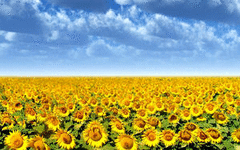Ukraine adapts trade links to soften Russian economic blow

High quality global journalism requires investment. Please share this article with others using the link below, do not cut & paste the article. At Kiev’s Boryspil airport, Igor, a 28-year-old Russian returning from what he calls an “excellent” trip to the Ukrainian capital, grumbles about the overnight journey he faces home. “I don’t see why I have to fly back to Moscow via Minsk” he complains.
Behind him, Timur, a regular business traveller between Russia and Ukraine, is similarly disgruntled. “We used to pay about $50 one-way for a direct flight to St Petersburg. Now I’m paying $200 [to go via Belarus],” he says. Flights between Ukraine and western Russian cities used to be cheap, plentiful and short — carrying hundreds of thousands of passengers a year. Now, they have become the latest casualty of a growing trade war that began before street protests ousted Viktor Yanukovich as Ukrainian president last year — as Moscow tried to dissuade him from signing an integration deal with the EU. Late last month, Kiev banned most Russian flights to Ukraine on the grounds that its carriers had violated national airspace by flying to Russian-annexed Crimea. The move was part of broader Ukraine-imposed sanctions aimed at punishing Russia for the still-smouldering war in breakaway eastern regions.Moscow struck back by barring Ukrainian airlines from flying into Russia, underlining the extent to which long-standing political, social and economic ties between two Slavic “brother” nations have unravelled. Trade with Russia halved year-on-year in the first nine months of this year — and things could get worse. Moscow has threatened to raise tariffs and eliminate all trade preferences if the EU-Ukraine free trade deal — eventually signed by Kiev’s new government after Mr Yanukovich’s departure — goes fully into effect as planned in January. Alexei Ulyukayev, Russia’s economy minister, said last week that the EU-Ukraine deal was “absolutely unacceptable” to Russia, adding that Moscow would bar Ukrainian food products from January 1.
His announcement came despite a year of three-way talks, including Moscow, on mitigating Russian concerns regarding the EU deal. Angela Merkel, the German chancellor, has pushed Brussels to do all it can to meet Moscow’s concerns over the trade deal, and ensure that President Vladimir Putin of Russia cannot use it as an excuse to put more pressure on Ukraine. But EU officials believe that whatever they negotiate on the technicalities, Russia’s response will ultimately be a political one. Aivaras Abromavicius, Ukraine’s Lithuanian-born economy minister, calls Russia an “unpredictable trade partner” that has imposed politically motivated blockades on everything from Polish apples and Baltic dairy products to Georgian wine.
Should Russia fulfil its threat towards Ukraine, however, the impact will be lessened by the broad shift that has already happened in its trade. Mr Abromavicius notes that Russia accounted in 2012 for a quarter of Ukrainian exports and one-third of imports, but that its share of trade has since more than halved. Although recession-battered Ukraine’s exports have fallen sharply this year, the proportion going to the EU has jumped from below 25 per cent in 2012 to almost 35 per cent in the first seven months of this year. Trade with China has risen from about 5 per cent to 8 per cent in the same period. Imports of Russian natural gas, long the biggest trade item between the two countries, have fallen to a bare minimum. That is not just because of Ukraine’s sharp economic contraction and disputes over unpaid bills, but because Kiev responded to price rises by increasing energy efficiency and diversifying gas sources.< “Russia’s ability to inflict economic pain on Ukraine is receding,” said Mr Abromavicius. “We have come through the worst effects of Russia’s economic attacks. It has been unbelievably hard, but we have survived, and now our focus is on new opportunities in new markets.” Russia’s trade restrictions have been most painful for Ukraine’s machine-building enterprises, based largely in Russian-speaking eastern regions including the war-torn Donbass. But other sectors, above all commodities and food companies such as poultry producers, are finding new markets.
Agricultural goods have overtaken steel as Ukraine’s top export and foreign currency earner. “We were told all the time that we could not do without Russia and the customs union”, which Moscow formed with Belarus and Kazakhstan and pressed Ukraine to join, said Oleksii Pavlenko, Ukraine’s agriculture minister. “But . . . Russia is now 2 per cent of our agriculture exports. We have compensated with other markets,” he said. The success of agricultural products has helped push the share of Ukraine’s exports to China and other Asian countries to more than 35 per cent. Ukraine, said Mr Abromavicius, has “turned a problem into an opportunity”. Though Ukraine’s economy is expected to contract by 9 per cent this year, there are signs the trend has bottomed out, with confirmation this month that third-quarter output increased 0.7 per cent from the previous quarter. However, further Russian trade measures in January could still be a blow — endangering the Kiev government’s hopes of eking out 2 per cent growth next year, and further undermining its popularity.
Ordinary citizens, businesses and travellers will suffer. In the baggage check-in line at Kiev airport, Timur says he is one of the “simple people” trying to conduct business between the two countries. “Earlier we were friends, but now we are enemies,” he says. “As usual, the politicians are to blame. Maybe sense will come to them.”
UAC Information Center by information FT
- 1363 reads







